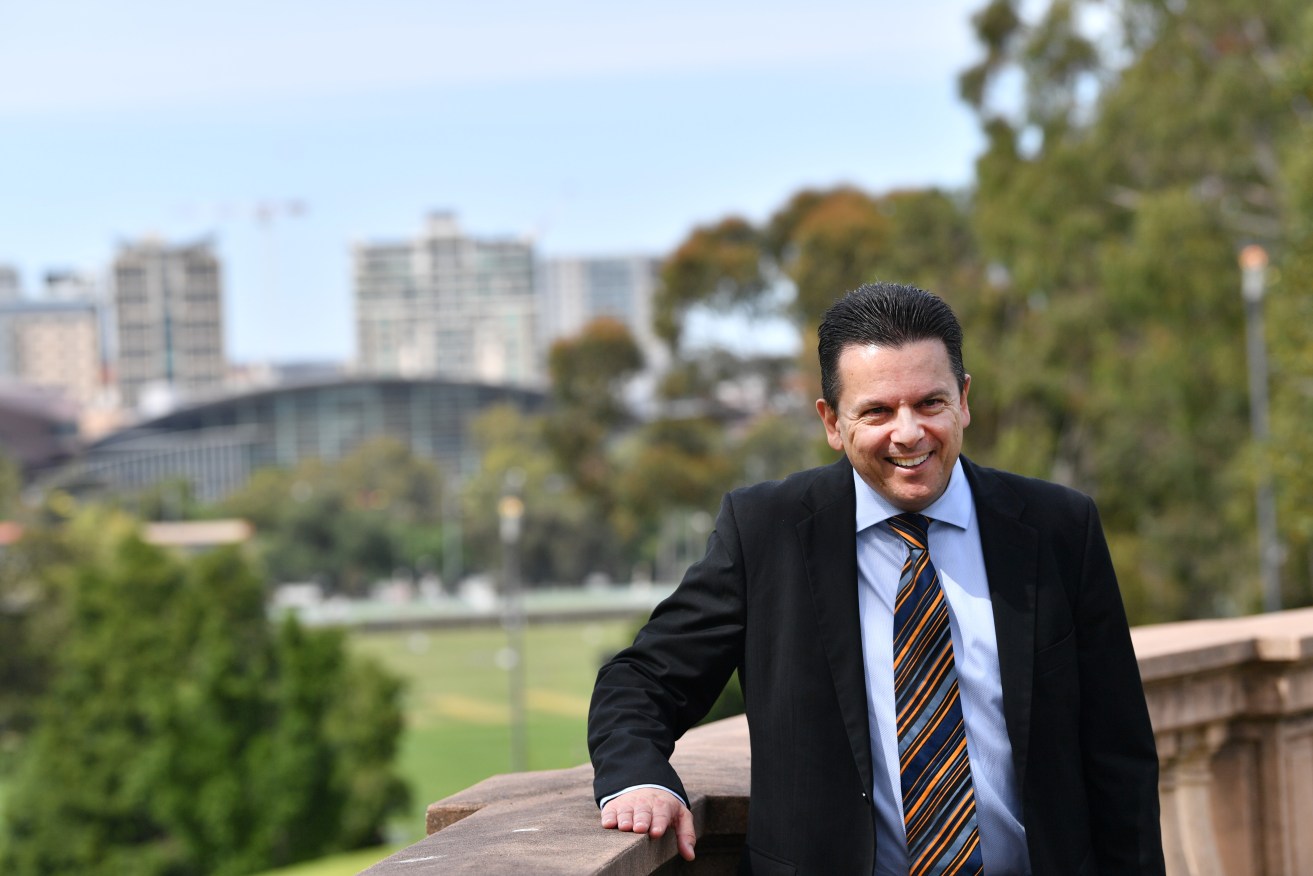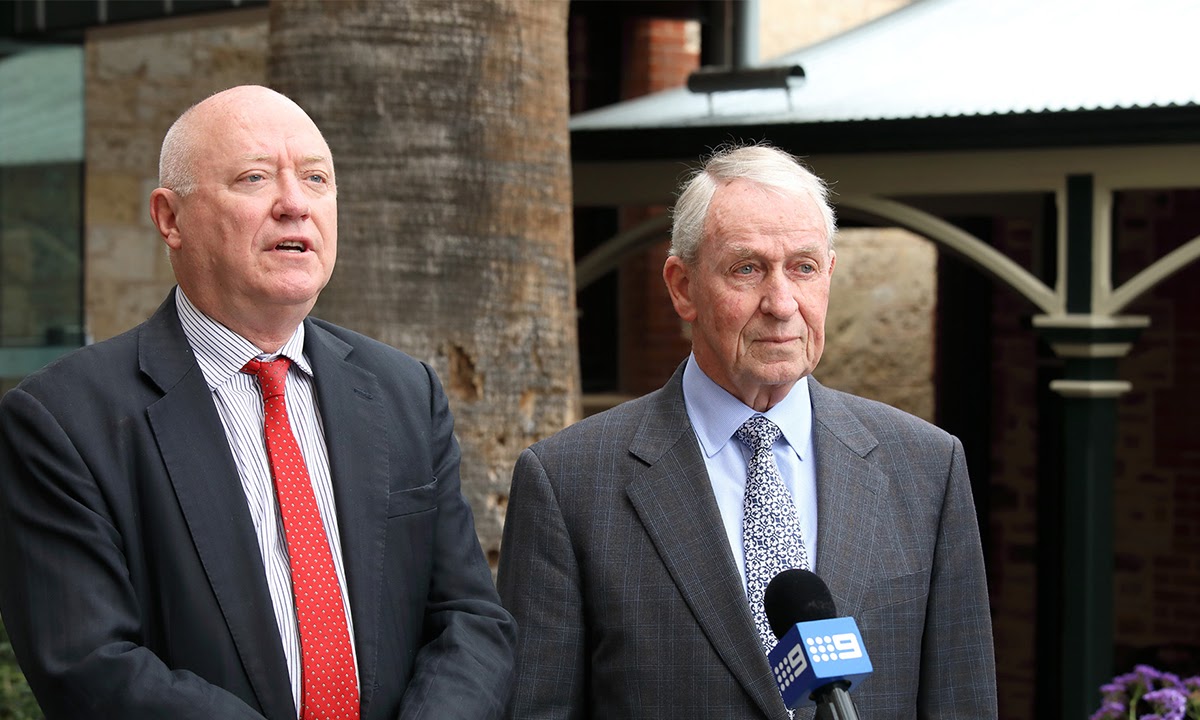‘The two-party system is broken’: Xenophon on board with broad constitutional reform
South Australians won’t face a referendum at the March state election, but one will likely be held within the next four years, with prospective kingmaker Nick Xenophon declaring the state’s constitution act is “broken”.

Nick Xenophon wants to return to state politics - and has the constitution act in his sights. Photo: David Mariuz / AAP
The Legislative Council is yet to vote on the State Government’s proposed bill to prioritise the principle of “one vote, one value” in future electoral boundaries redistributions – a bill that would trigger a referendum if passed.
A majority of crossbenchers have vowed to vote it down but in any case it now appears the bill will lapse without going to a debate.
But, as InDaily reported yesterday, Greens MLC Mark Parnell has vowed to introduce separate legislation in the new year to scrap the so-called “fairness clause” of the Constitution Act, which he says doesn’t reflect the decline of the two-party system.
And he could have high-profile support, with SA Best leader Xenophon seeking a state political comeback armed with a broad agenda of parliamentary reform – which appears set to include wholesale revision of the Constitution Act.
“I think that part of the constitution is broken,” he said of the electoral fairness provisions.
He pointed to last year’s federal election, in which the two-candidate vote ended up “coming down to a vote between NXT and the Libs in at least three electorates”.
“The two-party preferred [system] now doesn’t mean much [but] the system is stacked in favour of the two major parties,” he said.
He may or may not back the planned Greens bill, but declared the Act required “a complete rethink”.
Xenophon’s SA Best could well hold the balance of power in the next parliament – making his backing for any constitutional reform decisive.
South Australians haven’t voted in a state referendum since 1991 – ironically to implement the very same fairness clause in the Constitution Act that is now under a cloud. Since it was enacted, the Liberal Party has finished with a higher statewide vote than Labor in all but one election (2006) but only managed to form majority government once (1993).
Xenophon said he wanted a detailed debate on alternatives “but it needs to be something that’s fair”.
“I do have some sympathy for the view that if you’re a hard-working local member and you turn a seat that you win by virtue of your hard work into a safe seat, that [shouldn’t] be taken away every few years by virtue of the fairness clause,” he said.
“It’s an antiquated system, because the two-party-preferred system has broken down.”
He suggested a top-up system, whereby the party that wins the statewide vote can be allocated extra seats on that basis, as one option that could be discussed.
Although, he conceded, “that in itself might be problematic”.
“We’d want a review… we’d be pursuing changes that are genuinely fair [but] there’s got to be reform,” he said.
Xenophon’s former sidekick, John Darley, is one of the crossbenchers opposed to Labor’s current bill, and he remains unconvinced by the Greens’ proposed alternatives.

John Darley, right, with Advance SA candidate Peter Humphries. Photo: Tony Lewis / InDaily
Darley, who fell out with Xenophon earlier this year, recently launched his own “centre” party, Advance SA. But bizarrely, he doesn’t share the SA Best leader’s view that the two-party stranglehold is failing.
“Well, we’ll wait and see eh?” he said when asked about the prospect of a three-party split in the primary vote at the March election.
Asked whether he was convinced Xenophon’s party would feature prominently in the outcome, he said: “I’m not.”
It’s not an outlook that bodes well for his own fledgling party, which is running two upper house candidates – Peter Humphries and Jenny Low.
Asked if he thus felt they had no chance of electoral success, Darley replied: “No – but it’s going to be difficult.”
“The point I made with [Attorney-General John] Rau when I spoke to him [about the current bill] is: there’s been a redistribution, let’s see how that goes and then we’ll work out from there what needs to be done,” he said.
But he appeared to have little sympathy for his former running mate, whose seat he inherited when Xenophon first quit state parliament to run for the senate.
Xenophon garnered more than 20 per cent of the upper house vote in the 2006 election, but it was only enough to win him two Legislative Council seats.
“That’s the way the system works – if you don’t get the quotas, you don’t get the seat,” Darley says now.
Asked whether he supported the system as it stands, he replied: “We’ll see what happens in 2018 – if there’s a clear demonstration that there’s more than two parties in it, I’ll consider it on that basis.”




